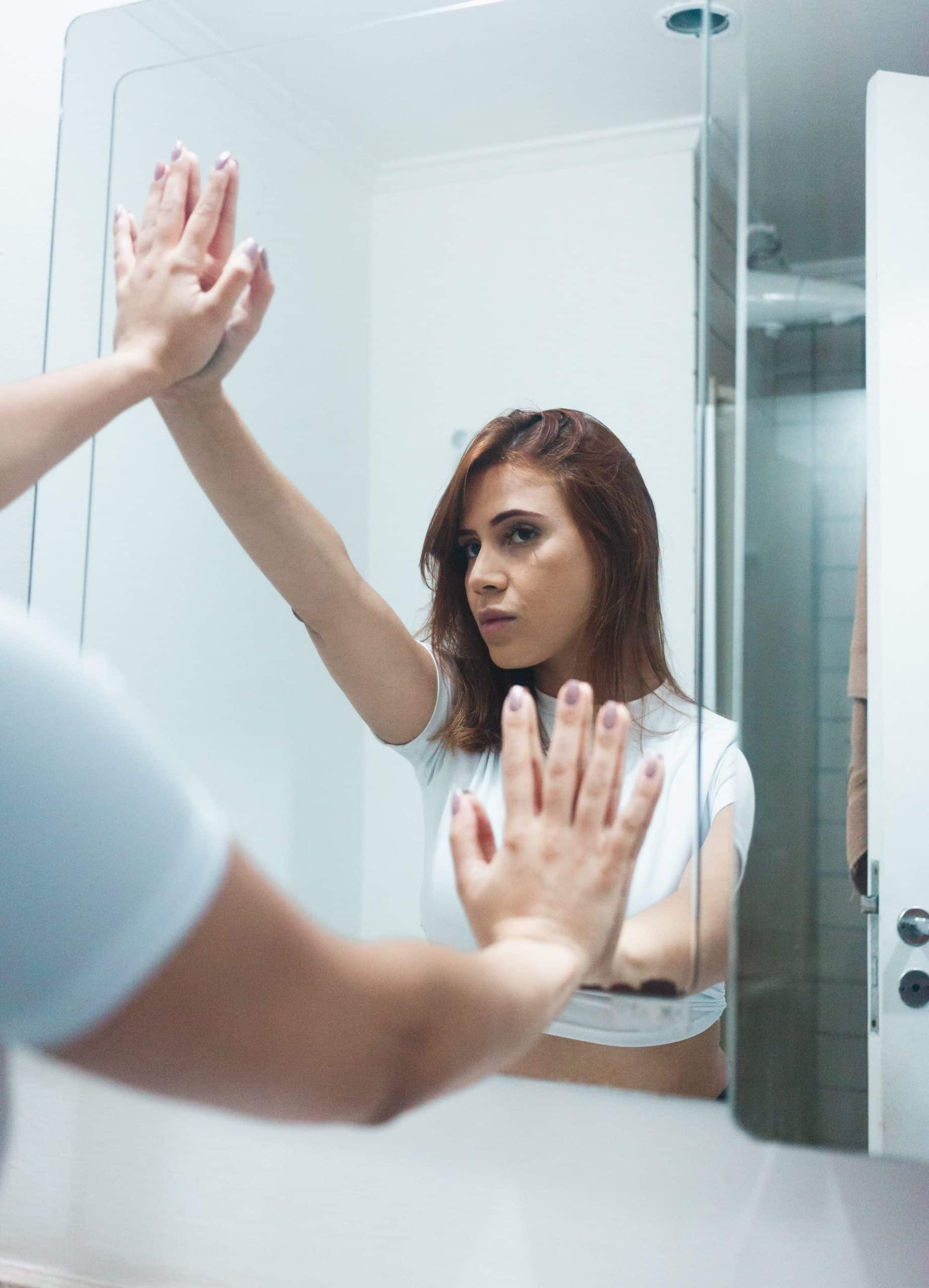What does your dream body look like?
Does it match up with what your body looks like right now? If you answered no, you’re not alone. Most people have an idealized version of their body, and this is not problematic itself. However, having unrealistic expectations of your body and what it looks like can be a slippery slope.
What is our body image?
Your body image is the way you perceive, think, and feel about your body. Women especially are placed under a lot of pressure to make sure their bodies look a certain way, often slim with as little visible fat as possible. The pressure that we are put under can lead to issues with our body image. We may start to dislike our bodies and want to change them, so they look more like the bodies that society praises.
Body image issues can stem from specific interactions with people as close as our parents and friends. For example, your Mom may have made comments about your weight as a child and that might have led you to be extremely cautious about your eating habits, so you don’t gain any weight.
Body image and substance abuse
There is a direct link between substance abuse and body image issues. Research has shown that people with poor body image are more likely to abuse substances. Substance abuse and body image issues are related in a few different ways:
- People who have a poor body image may use drugs or alcohol to escape their self-view, and numb the discomfort they feel with their bodies
- Research has found that people with eating disorders and poor body image tend to turn to drugs and alcohol.
- Many substances can serve as appetite suppressants. Some people may use alcohol and drugs as a way to control their weight. People can also replace meals with alcohol, cigarettes,
How can we address body image issues?
How we perceive ourselves has a massive impact on day-to-day life. However, there are some ways to combat negative thoughts about our body image
-
Identify your negative thoughts and challenge them
Firstly, you need to become aware of any negative thoughts you have about your appearance. Pay attention to the way you talk to yourself when you see yourself in the mirror.
Once you identify the thoughts, challenge them. Are they realistic? What evidence is there to suggest that they are true? Eventually, you will start to see that there is no basis to view your body image in such a skewed and unrealistic way.
This would be a great process to start with a therapist, especially if you have never done it before. Our therapists at Heritage Treatment Foundation are equipped and trained to walk through this process with you
-
Appreciate your body for what it can do
Even if your body doesn’t look exactly how you would like it to, it has done (and can do) some really amazing things. Try expressing gratitude for all that your body does. This is a great way to shift the focus from the physical aspects of your body that you may dislike, to non-physical aspects of your body that you may lose sight of at times.
-
Take care of your body
When you’re dealing with body image issues, you may feel like your body is not worth taking care of. However, taking care of your body is a powerful way to counter negative thoughts about it. Choose foods to nourish your body, and exercises to strengthen it.
Can we address body image issues and substance abuse at the same time?
A holistic approach to recovery tries to address the obvious issues (i.e. substance abuse) while also digging deeper to learn why these issues might have started in the first place. This is our approach; our treatment at Heritage Treatment Foundation covers all aspects of the human condition. Trained professionals are available to support you as you work through both issues, and any others you may be dealing with. Please contact us today to start your healing journey

